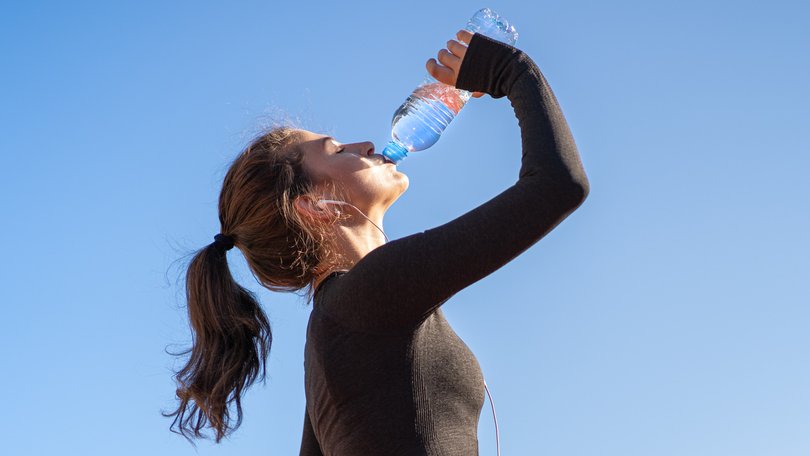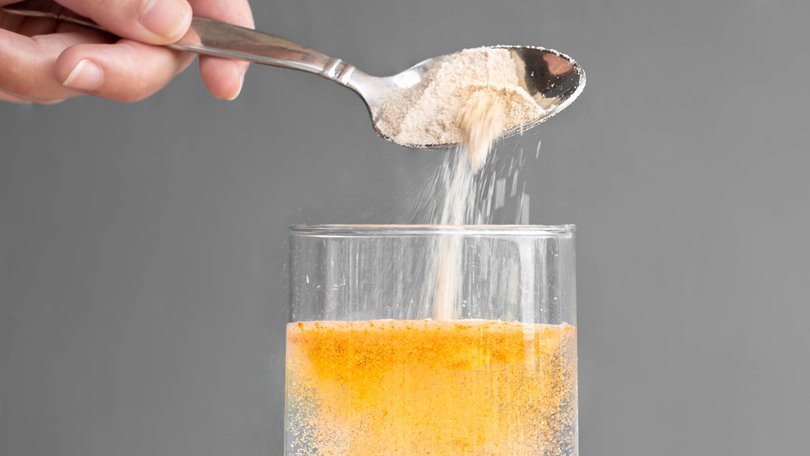Sarah Di Lorenzo: Do electrolyte powders really work? Nutritionists explain when you actually need them
Sarah Di Lorenzo: Are hydration supplements and electrolyte powders worth it or just clever marketing?

Hydration supplements are having their moment as tablets, electrolyte mixes and powders promise to hydrate more effectively than plain water.
But do these supplements actually work and are they really better than simply drinking plain water? Scientific evidence suggests that while electrolyte products have a place for certain people and situations, for most healthy adults, plain water remains the best and safest.
Firstly, let’s understand how hydration works and why it is so important. Water makes up around 60 per cent of the human body and supports almost every biological process.
Sign up to The Nightly's newsletters.
Get the first look at the digital newspaper, curated daily stories and breaking headlines delivered to your inbox.
By continuing you agree to our Terms and Privacy Policy.It regulates temperature, transports nutrients, removes waste, lubricates joints, cushions joints, aids digestion, supports oxygen delivery, nutrient absorption and brain function. Staying hydrated ensures steady blood flow, efficient metabolism, and even mood and concentration.
Hydration isn’t just about water, it is also about maintaining the body’s fluid balance regulated by electrolytes which are charged minerals such as sodium, potassium, calcium and magnesium.
They control how fluids move in and out of cells. In normal good health we get these minerals easily through a balanced diet and maintain proper fluid levels simply by drinking water when thirsty.
When it comes to what is actually in hydration supplements and drinks, most products are a combination of electrolytes — mainly sodium, potassium, magnesium and chloride — with sugar or other carbohydrates to enhance fluid absorption through the gut. When reading labels you will find some brands also add vitamins, mainly vitamins B and C, and amino acids. These don’t directly influence hydration performance.

The logic behind these products is that carbohydrates and sodium together can increase fluid uptake in situations where hydration is challenged such as during intense exercise sessions, illness or exposure to heat.
So they are useful for endurance exercise and athletes during long high intensity training for more than an hour, because sweating can cause losses of sodium and potassium; electrolytes can prevent cramps.
If you work in hot climates, are in heat, or are working outdoors in humid conditions, sodium loss can exceed what is easily replaced through food.
Therefore electrolyte products can help with preventing dehydration and maintaining fluid balance. When it comes to illness, especially fever, vomiting and diarrhoea, drinks with glucose, sodium and potassium can help with fluid and nutrient absorption more effectively than simply drinking water.
Electrolytes can also help people when on a ketogenic diet by lessening the symptoms in the early stages of the “keto flu”.
They can also be excellent for those with a hangover.
Outside of these situations, hydration supplements for someone at rest have no advantage. Most people maintaining regular activity levels and eating balanced meals have no need to supplement with electrolytes. For most people water is still the best and is the gold standard for meeting hydration; unlike products, it is calorie free, inexpensive and completely sufficient to maintain fluid balance.
The vitamin and electrolyte enhanced drinks marketed for everyday hydration can in some cases lead to unnecessary excess sodium or sugar intake. Neither of these are good for cardiovascular health.
The level of hydration really depends on how consistently you drink fluids and not on whether they come from a supplement. Hydration also comes from foods such as fruits, vegetables, soups and yoghurts. This can also contribute significant water and electrolyte content, naturally.
Hydration powders are classified as dietary supplements and can have downsides. Some formulations may contain artificial flavourings, artificial sweeteners, caffeine or added sugar which really means they are a sweet beverage rather than a medicinal supplement.
People with kidney disease, high blood pressure or diabetes should be especially cautious with these products due to their sodium and glucose content. Always check with your doctor.
Hydration supplements can be excellent when they’re needed for athletes, heat and during illness recovery, ketosis and a hangover but the truth is they’re not inherently better than water for normal daily life.
For the majority of people, the best way to stay hydrated is to consistently drink water throughout the day.
Aim for 30 ml per kg of your own body weight and eat a variety of fruits, vegetables and whole foods that naturally supply electrolytes like potassium and magnesium.
To improve your water intake and you love some flavour, try adding a squeeze of lemon, lime or a few cucumber slices to your water offers a healthier, cheaper hydration boost.
